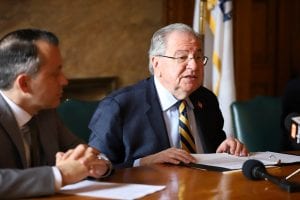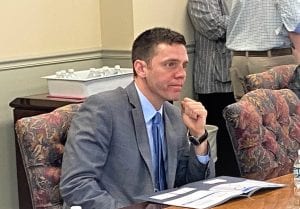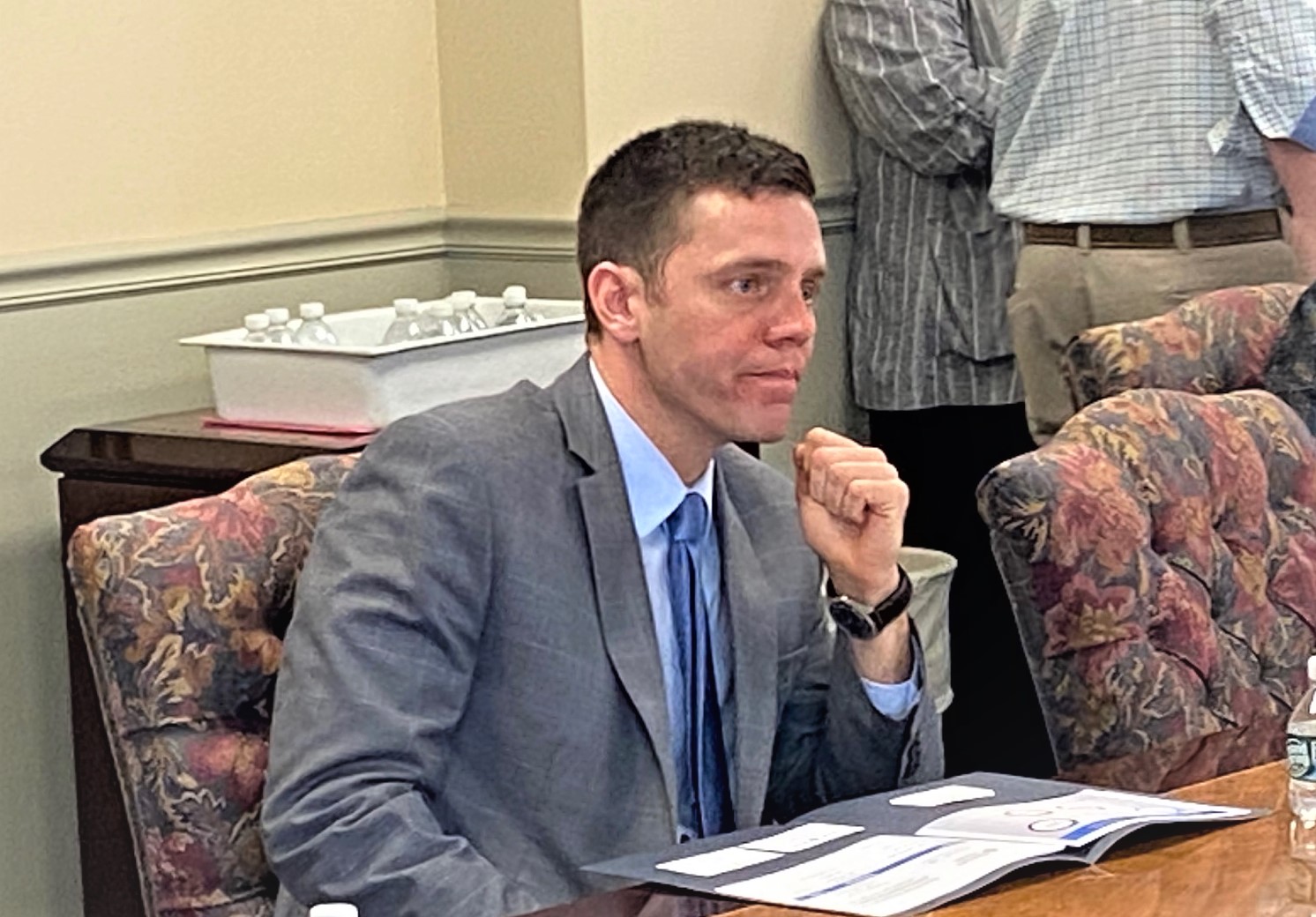
HOUSE SPEAKER ROBERT DeLEO (SAM Doran/SHNS)
BOSTON – State Rep. John C. Velis, D-Westfield, is alarmed by the new Transportation Revenue Bill presented to the House Feb. 26.
Velis said he has “grave concerns,” noting that since being elected in 2014 he has been vocal in his opposition of gas tax hikes.
“Ever since I’ve taken office in 2014, I have voted against and raised serious concerns on the gas tax as a revenue generating mechanism,” Velis said in a prepared statement. “The gas tax disproportionately effects low-income, middle-income, and fixed-income people.”
The $600 million tax bill was rolled out by House Speaker Robert DeLeo. According to State House News Service, the bill was called both “genius” and “ill-advised.”

STATE REP. JOHN C. VELIS
The newly proposed Transportation Revenue Bill aims to generate between $522 and $612 million annually through a 5-cents per gallon gas tax hike — with diesel fuel getting an additional 4-cents per gallon on top of that. The bill includes increased fees on ride hailing services such as Uber, ending the state’s sales tax exemption for the purchase of vehicles by rental car companies and a new corporate tax minimum.
Velis said one of his concerns, aside from the increase itself, is how the funds will be used.
“I’m hearing a lot of talk about new taxes with a very vague plan on how the revenue raised will be used going forward,” Velis said. “We have resources available to us such as marijuana revenue and the governor just put $1 billion in the rainy day fund. We also have the potential for new revenue streams such as legalized sports gambling. The options are there, it’s time to stop putting the burden on taxpayers for poor policy making and fiscal mismanagement by the MBTA.”
According to a press release from Velis, lawmakers estimate the new gas tax could generate just north of $200 million a year in revenue between the diesel tax hike and gas tax hike. However, there are very few specifics on how the new revenue would be allocated. One specificity is a plan to transfer $160 million annually from the transportation fund to the MBTA.
“The gas tax is unfair to Westfield and Western Mass. communities because we drive more,” Velis said. “A quarter of sales tax revenue already goes to the MBTA, and we’ve fronted the bill on Eastern Mass projects before such as the Big Dig. Now we’re discussing a tax increase that could cause many families a world of fiscal hurt without offering any specifics on how it would improve our transportation and infrastructure out here in Western Mass.”
Supporters of the gas tax have argued that the gallon raises are not a big hit on the gas tax and are much lower than initial proposals.
“Try telling that to our senior population here in Westfield who are living on a fixed income and driving is their only way to get around,” Velis said. “Just the other day I was at the Westfield senior center and a resident told me how any type of gas tax would have a serious impact on her life because she lives on a fixed income.”
Velis plans on raising all of these concerns when the house debates and votes on the bill next week. “I fully intend on fighting this regressive tax on the House floor next week.”
State House News reports that business groups were pushing for a major gas tax increase and a one-year study of congestion pricing and tolls. Progressive lawmakers wanted corporations to help pay for public transit and road improvements. And Gov. Charlie Baker just wanted authorization to borrow more money to beef up the state’s capital program.
In the end, keeping everyone happy proved difficult, wrote Chris Lisinski and Matt Murphy.
“I think we tried to keep everyone who uses our roads in some fashion involved with the payment of it,” DeLeo said Wednesday, after presenting the plan to House Democrats in a private caucus.
Massachusetts Fiscal Alliance spokesman Paul Craney said the gasoline and diesel tax increases were “regressive tax schemes” that should be avoided.
“Massachusetts is a wonderful state, if you can afford it. Under the Speaker’s plan, fewer taxpayers will be able to keep up with the increased cost of living. These measures make it harder for people to make their home here and do business in the state and will only hurt the middle class—especially workers who have to drive,” Craney said in a statement.
Velis said the Bill was presented Wednesday and a vote could be taken next week.








